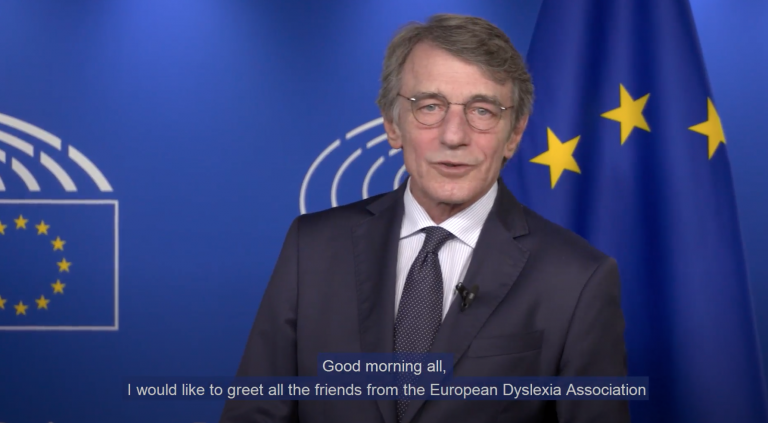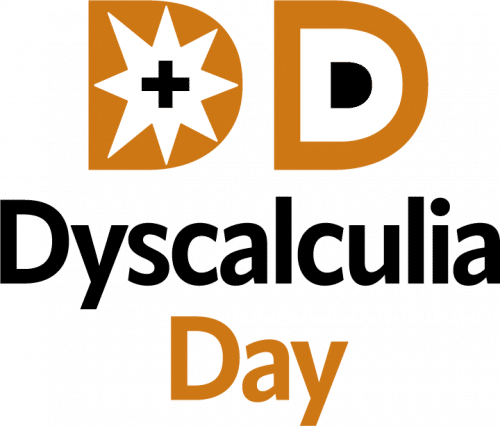The President of the European Parliament delivered a message to the European Dyslexia Association and its members at the annual General Assembly. David Sassoli cautions member states about the lack of accessibility in the provision of distance learning and the increase of the numbers of early leavers.
“The lack of accessibility is a new barrier to fundamental rights”
President of European Parliament
Here is the complete message of Mr Sassoli:
“I would like to greet all the friends from the European Dyslexia Association, its President Rosie Bissett and all the associations participating today in this important event, which, every October, marks the European Dyslexia Awareness Week.
We live in a time of great challenges. The months that have just passed and the months to come have put us through tough trials. The COVID-19 pandemic has affected our systems, it has confronted us with new challenges, those that come from a global world and come into our societies creating great problems, and this highlights the increasingly close interconnection between our societies and our countries.
“Solidarity, inclusion and equality”
We have said it from the beginning: We will not get out of this crisis the way we came in. On the contrary, we must seize the opportunities of recent challenges to undertake a true paradigm shift. We must reflect on our core values and priorities, first and foremost, the right of each of us to live in a society based on the values of solidarity, inclusion and equality. No one should be left behind.
We are all vulnerable, and Covid has shown us that. The challenges that will arise in the coming days and weeks will not knock on our doors but will come without warning and we must be more resilient, more independent and stronger in finding solutions to urgently address the issues that a globalised world poses to us.
“The European parliament will not accept cuts to European key Programmes”
It is necessary not to lose sight of our fundamental values and in this very challenging moment, institutions have a duty to protect those citizens who are in the most difficulty, those who suffer and risk being forgotten or excluded, this is why the European Parliament will not accept cuts to key programmes such as Erasmus, Horizon, or immigration funds. The creation of a more favourable environment in education and employment must be a starting point for European policies.
“The lack of accessibility has increased has increased the number of students dropping out”
The world of education has undergone profound changes that have had an impact on the lives of all young people, with some penalised more than others. The reopening of schools in recent weeks has posed a major dilemma because the lack of accessibility in the provision of distance learning has increased the number of students dropping out. Dyslexia and the problems of specific learning disorders are still inadequately addressed. These inequalities still constitute a discriminatory principle and therefore it is essential to break down all those physical or cultural barriers that still generate inequality and marginalisation.
“A new barrier to fundamental rights”
Our European Union is based on the pillars of solidarity and equality and, in the face of the great ecological and digital transformations we are experiencing, we cannot accept that digitisation is a new barrier to fundamental rights such as education and knowledge.
All this has an impact not only on work, quality of work, scientific development, social and cultural development but also has an impact on the private sphere and daily well-being of 40 million European citizens suffering from dyslexia.
It is a question of individual rights because equality is not a starting point, but an objective to be achieved and, for this reason, we have to work even harder.
Thank you all for your work, for your commitment, for your calls. Moreover, of course I hope that as soon as this unhappy season is over we will have the chance to meet.”





